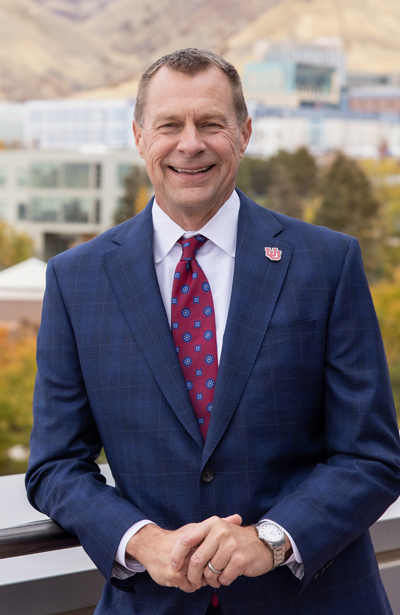
About Kurt Dirks
Dean, David Eccles School of Business
Highlights of Dean Dirks’ First Year
Kurt Dirks is Dean of the David Eccles School of Business and Professor of Leadership at the University of Utah. He joined the U on July 1, 2024. He is an experienced academic leader, a renowned researcher, and award-winning professor. His academic expertise is on the topics of leadership and trust within organizations.
A first-generation college student, Dirks earned BBA and MS degrees from Iowa State University, and a Ph.D. from the University of Minnesota. Based on this personal experience, Dirks has strong belief in the role public universities, like the University of Utah, play in providing a transformative education for those who seek opportunity. He is also committed to the school being an integral part of the Utah business community and in advancing the proud legacy of the school and its alumni.
Prior to coming to the University of Utah, Dirks was the Bank of America Professor of Leadership at the Olin Business School at Washington University in St. Louis. Earlier in his career, he was on the faculty of the University of Illinois at Urbana-Champaign and at Simon Fraser University in Vancouver, Canada.
He served in multiple senior leadership roles at WashU, including stints as acting provost, senior advisor to the chancellor for leadership, vice chancellor of international affairs, and at the business school as senior associate dean and interim dean. This included founding the Bauer Leaders Academy at WashU, the Bauer Leadership Center at the Olin Business School, and developing the IITB-WashU EMBA program in India.
As a scholar, Dirks’ research on trust has been published in leading scholarly outlets such as the Journal of Applied Psychology, the Academy of Management Journal, Organization Science, and the Academy of Management Review, and has been covered in popular media such as the New York Times, the Washington Post, Los Angeles Times, Business Week, Fortune, and CNN.com. According to Google Scholar, Dirks’ work has been cited over 30,000 times, which is among the top 2% of scholars in the field.
Dirks is married and has a son and daughter.
You can read more about his story and journey to Eccles here.




